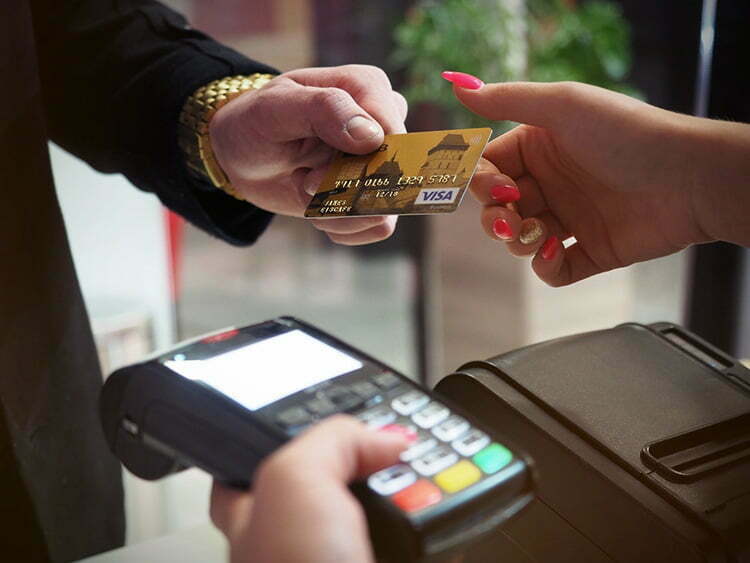
Credit is an individual’s ability to borrow money. It also allows a person to access goods, products, or services with a deferred payment. With the help of credit, an individual or a company enters into an agreement that allows them to pay for the services, money, goods, or products on a predetermined date.

Revolving Credit
In this type of credit, the debtor, or the one who owes money, has a credit limit. The credit limit or the borrowing limit is the maximum amount of charges that the debtor can accumulate during a specific period.
The debtor needs to make a minimum payment each month. The debtor also has the option to pay the full amount or a portion of the outstanding charges. If a debtor decides to make a partial payment, the remaining balance gets carried over or revolved. Credit Cards are examples of revolving credit.
Installment Credit
Installment credit involves a loan that a debtor pays over time. A debtor is given a set number of scheduled payments that the debtor needs to adhere to. The term of an installment credit depends on the creditor and the value of the credit. It can be as little as a few months or as long as 30 years.
Auto loans, mortgages, and student loans are typical examples of installment credit.
Service Credit
Service credit is common with service providers like cellular service companies or gas, water, and electric utilities. It can also involve cable and internet providers. These companies allow their customers to use their products and services with the understanding that customers will pay for them at the end of a billing cycle.
Charge Cards
Charge cards are cards issued by retailers to their customers. Unlike credit or debit cards, customers can only use charge cards on a particular establishment. Charge cards also don’t allow customers to carry a balance. When customers use charge cards, they need to pay all the charges in full at the end of each billing cycle.
The Importance of Credit
Building a good credit history is essential for individuals and companies who want to establish their financial security. Excellent credit history is crucial for someone who wants to borrow at favorable rates. Good credit history can also help someone have lower insurance rates. Some utility providers also waive deposits for a utility agreement.
Proper management of credit can also be of great help. When an individual keeps credit utilization at a low, the said individual also frees up money for use in emergency purchases. A good credit score can help an individual save money on loans because they are more likely to get favorable rates.
How to Build a Good Credit Score
Building a good credit score can help an individual gain access to loans and credit cards with better terms. It is easy to build a good credit score, but it will take time and effort. Here are some of the things that an individual can do to build a good credit score.
Regular Credit Use
Regular use of credit can help lenders determine how a person deals with credit. It is a chance for an individual to prove how responsible the said individual is. Most financial institutions require a debtor’s credit-related activity for the past six months for a proper assessment.
Good Payment History
If an individual wants to have a good credit score, the said individual needs to ensure that payments are made on time for existing loans. It proves to creditors that an individual is responsible and can adhere to a loan agreement. If an individual falls behind a payment, effort should be exerted to catch up as soon as possible.
Low Credit Card Balance
Credit card use is an excellent way of building a credit history. As long as an individual pays off credit card bills on time and in full, an individual can establish a good credit history without the burden of interests or late fees.
Credit card balance should be in proportion to the card’s credit limit. Even if the credit limit is just a few hundred dollars, an individual should ensure that the card’s balance gets paid off on time.
Borrowing Wisely
An individual should limit borrowing to instances when an individual absolutely needs to. Before borrowing, a debtor needs to make sure that the monthly payments that come with the new account are affordable.
It is also a good idea to avoid applying to multiple loans at the same time. No matter how small the monthly payments are, taking on too much debt can damage an individual’s financial health.
Get Updated on Credit Scores
Keeping track of credit scores and credit reports can help an individual make sure that every part of the report is accurate. An unexplainable drop in the credit score needs to get addressed immediately. If an individual sees an error on the credit report, it needs to get reported immediately to credit reporting agencies for proper corrections.
How Do Credit Cards Work?
When a debtor purchases at a business establishment, the credit card gets inserted in a credit card terminal. The terminal reads the security chip on the credit card. The credit card terminal determines the validity of the credit card.
The credit card issuer informs the business establishment whether the transaction is approved or declined. An approval means that the cost of the purchase gets charged towards the credit limit. When a credit card gets rejected, it can be because of the credit limit or the credit card's deactivation.
Credit Line
Each credit card account comes with a credit limit. The credit limit is the amount that an individual can purchase using a credit card.
If an individual has a $500 credit limit and makes a purchase worth $50, that individual will have $450 left in the available credit. This means that the next time that the credit card gets used, the credit card owner can use the credit card to make purchases worth up to $450.
When a credit card gets used, the credit card issuer provides the user with a set amount of time to pay back the entire borrowed amount. Once this period lapses, the credit card issuer starts charging interest on the borrowed amount. This period is called the grace period and is usually between 21 and 25 days long.
An individual who fails to pay off the full credit card balance gets charged with a fee, often called a finance charge. The amount that constitutes the finance charge depends on the credit card issuer's interest rate and the outstanding balance.
If you have more questions about credit, contact Processing Card today!
Florence Carpenter is passionate about ensuring that the process of opening merchant accounts is as straightforward as possible. She graduated from the University of Michigan with a bachelor’s degree in Marketing.